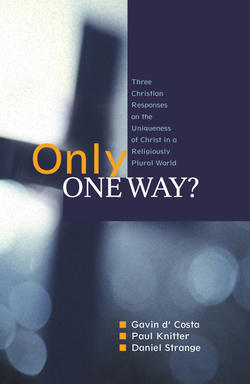Читать книгу Only One Way? - Gavin D'Costa - Страница 14
На сайте Литреса книга снята с продажи.
The modern period
ОглавлениеThere are five important factors that mark the modern period that have shaped the Catholic Church’s formal teachings on our subject. First, there is the end of ‘Christendom’. Europe slowly became secularized, initially through the ‘alleged’ wars of religions whereby Catholics and Protestants slaughtered each other;8 and later through the nation-state’s overcoming of these differences through a unitary identity found in belonging to the state rather than a particular religion. The second factor that marks the modern is the profound crisis of two world wars fought in the heart of Christian Europe. Christians slaughtered each other savagely. Unsurprisingly many Europeans had no confidence in the cultural resources of their ancient religion. Many found solace in modern science that was perceived to have more authority than religions in its claims. Science also had vast instrumental power and seemed to offer possibilities of ‘redemption’ for millions of people in poverty. Others turned to ethics without religion. Some intellectuals turned to the ‘East’, which had been idealized by German Romanticism. This mythical ‘East’ seemed to offer something different from war and destruction. A third factor was the Holocaust. The slaughter of nearly six million Jews at the heart of a Christian culture raised deep questions about Christianity’s attitude to the religious ‘other’ as well as its own complicity in European anti-Semitism. A fourth factor was the critique of missions from the viewpoint of secular modernity. Many liberal Europeans saw Christian mission as culturally arrogant, failing to learn from the deep wisdom of the East, bearing responsibility for the destruction of primitive and ancient cultures, and falsely valuing Christianity over other religions. Fifth and finally, many ‘prophetic’ voices within Catholicism saw the future as requiring a deeper assimilation to modernity. This latter issue is still unresolved in the Catholic Church although Popes John Paul II and Benedict XVI have developed a trenchant critique against many aspects of modernity that should certainly call into question any uncritical assimilation.9 This background helps in part to understand the importance of our topic for dogmatic, apologetic and pastoral reasons. It is also the background that meant the Second Vatican Council addressed the issue of other religions in three of its documents.
